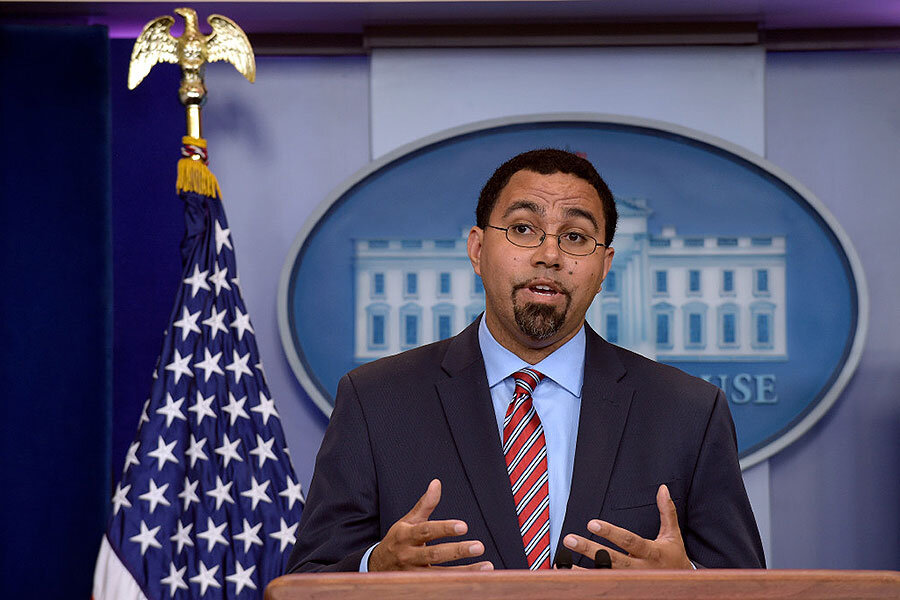DoED settlement: For-profit school must scale back student success claims
Loading...
The US Department of Education announced a settlement Thursday with DeVry University, a for-profit institution of higher education, over the school’s use of post-graduation employment claims in advertisements to lure new students.
DeVry got in trouble with regulators for widely advertising that since 1975, 90 percent of graduates had found a job in their field within six months of graduating. The school was unable to substantiate that claim, the Department of Education concluded, based on materials it requested from DeVry in August 2015.
“This is yet again another major instance of a for-profit institution running into difficulties with the new regulatory scrutiny,” Kevin Kinser, the head of the department of education policy at Pennsylvania State University, tells The Christian Science Monitor.
“Students deserve accurate information about where to invest their time and money, and the law is simple and clear: recruitment claims must be backed up by hard data,” US Secretary of Education John B. King, Jr. said in a statement.
Both the Department of Education and the Federal Trade Commission (FTC) are working to investigate DeVry. As a result of this week’s settlement, DeVry will be required to post a more than $68 million letter of credit, cease advertising with its "90 percent" statistics, and prominently state on its website that the previous claims were unsubstantiated.
Although it is the latest school to run afoul of federal regulators, DeVry is not alone. In recent years, a number of for-profit chains have come under scrutiny, as evidence grows that attending such institutions often leaves students in debt and poor employment outcomes, a cycle that worsens the ongoing student loan crisis in the United States.
“For-profits are not going away. We’ve had for-profit higher education in this country since the beginning. What is changing is the model of national corporations running these institutions,” Dr. Kinser says.
Big national corporations run into regulatory difficulties, Kinser says, because they’re trying to reconcile a number of competing interests and aims. These targets run the gamut from providing education, to turning a profit for investors, to maintaining proper disclosure with federal regulatory agencies.
Currently, several for-profit schools are suspected or accused of defrauding prospective students, many of whom see a college education as a necessary step towards personal and financial success, but are unsure how to best achieve that goal. ITT Technical institute, for example, was forced to close after the federal government banned the institution from enrolling students who receive federal aid.
"If government regulators get tough with fraud and deception, you could have a strong for-profit industry that was actually serving students," attorney David Halperin told US News in 2015. "If federal and state authorities continue as they have been on a strong push to expose and banish the fraud in this industry, then I think you could get to a place where the bad actors would get out. ... But it's not over yet."
Despite the series of setbacks that have befallen these for-profit schools, many still remain in business, and are finding ways to succeed despite greater federal regulatory scrutiny.
“I don’t think we’ve seen bottom yet,” says Kinser. “I think we’re still trying to figure out how these schools can combine profit and education.”






